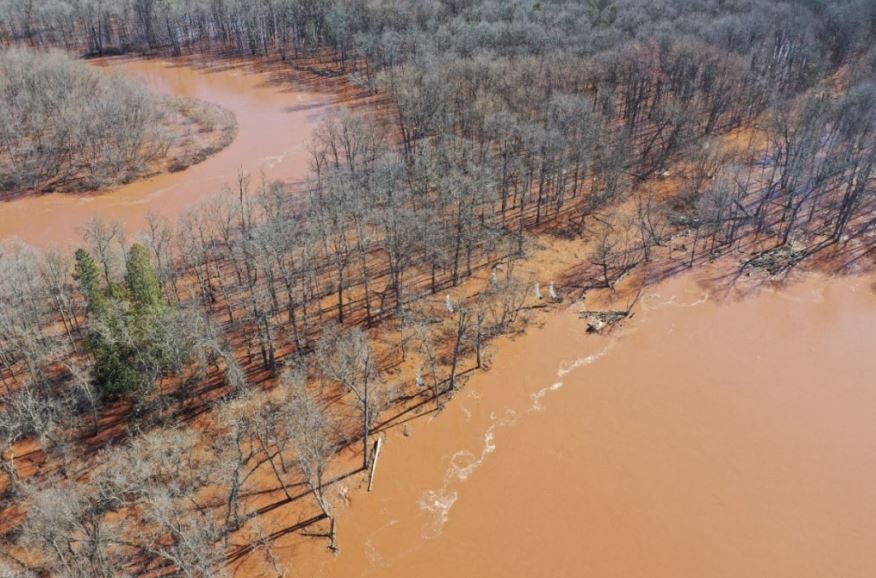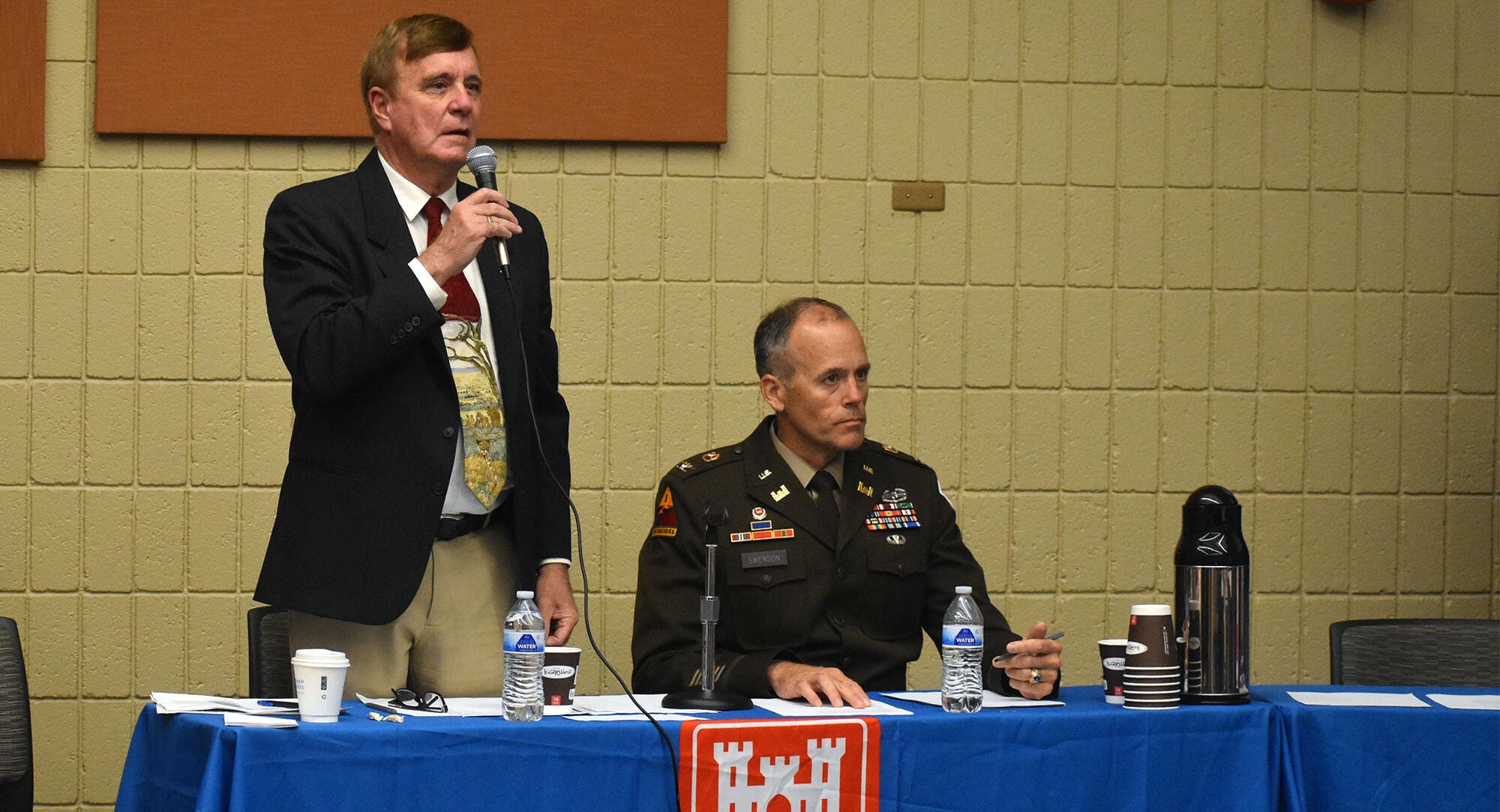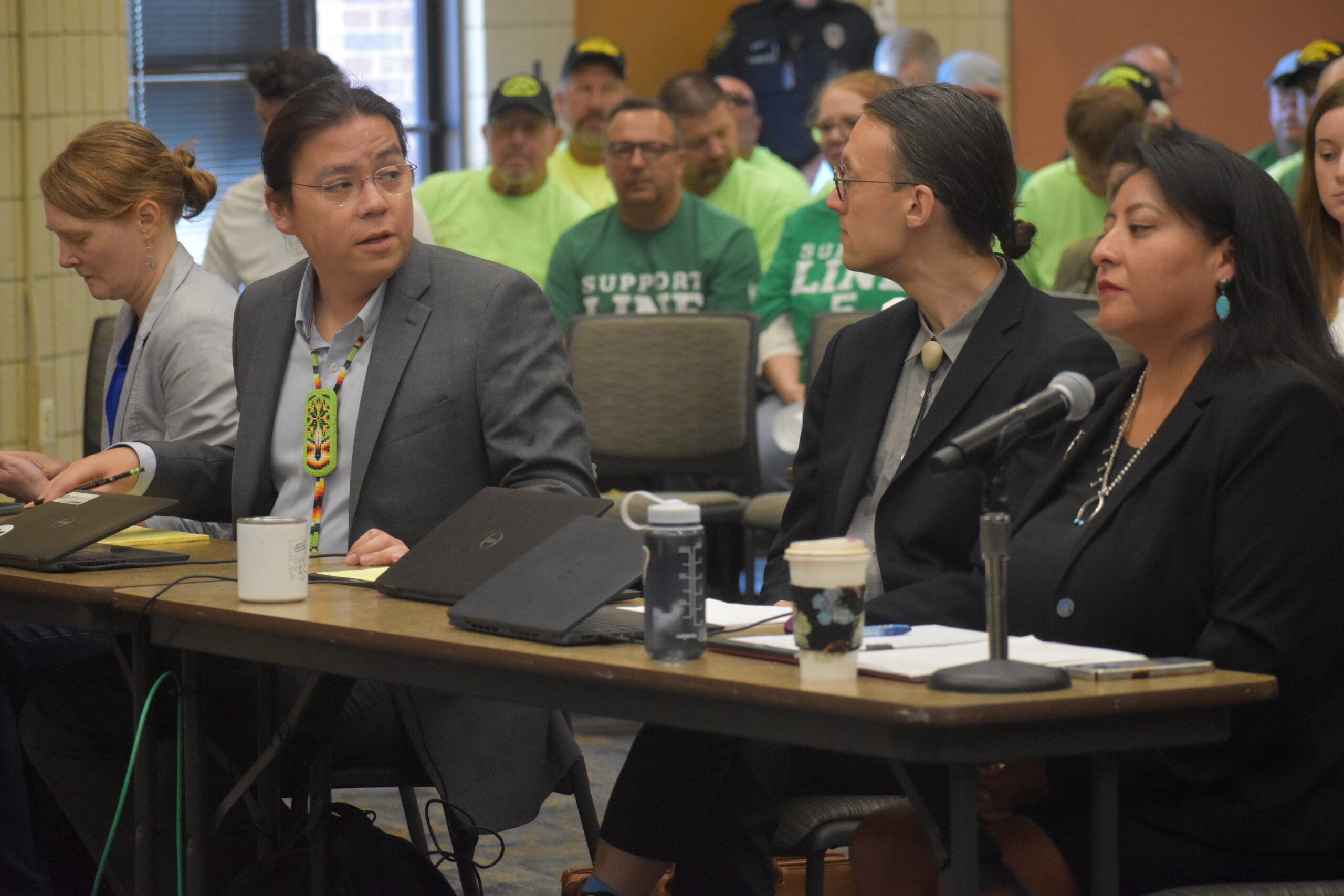Attorneys for a northern Wisconsin tribe want a federal judge to order Enbridge to shut down the company’s Line 5 oil and gas pipeline on its reservation over fears erosion may compromise the line’s integrity.
Lawyers for the Bad River Band of Lake Superior Chippewa filed an emergency motion in federal court Tuesday to shut down Enbridge’s Line 5. Attorneys for Bad River asked U.S. District Court Judge William Conley to make a decision on its motion by Friday as the river draws closer to the pipeline at an area known as the “meander” due to erosion from spring flooding. Bank erosion along the river has increased due to high flows since the second week of April.
In the filing, attorneys say the river is less than 15 feet from the pipeline at four locations and only 11 feet of bank remains in one spot.
News with a little more humanity
WPR’s “Wisconsin Today” newsletter keeps you connected to the state you love without feeling overwhelmed. No paywall. No agenda. No corporate filter.
“Erosion continues to progress … and important factors suggest that further bank loss could be significant, resulting in the exposure and rupture of the pipeline. These circumstances present an imminent threat to the Bad River watershed and Lake Superior, and hence to the rights of the Band and the public, and they warrant immediate action by this Court,” attorneys wrote in court filings.
Bad River Tribal Chairman Mike Wiggins, Jr. said the amount of riverbank lost in one area within just the last week represents roughly the same amount of bank that remains between the river and pipeline.
“It’s imperative with the lives of our people and our way of life and all of the fish that are currently in the river system spawning — it’s imperative that it’s people and ecosystems over profit,” Wiggins said. “It’s imperative to act to protect the downstream resources.”
The tribe’s motion comes just one week after the tribe and Enbridge said current conditions did not require a shutdown in a joint brief detailing the status of erosion near the pipeline.
Enbridge said in a statement that there’s no risk to the pipeline, which continues to operate safely. Line 5 carries up to 23 million gallons of crude oil and natural gas liquids each day from Superior across northern Wisconsin and Michigan to Sarnia, Ontario.
Enbridge spokesperson Juli Kellner said the company was “extremely disappointed” with the tribe’s motion. Kellner said the company’s staff and the tribe visited the site on Monday.
“The pipe is not exposed, it is completely covered by multiple feet of soil; there is no pipeline safety issue and certainly no cause for alarm,” Kellner said. “To be clear, the band’s leadership seems determined to shut down this piece of critical, North American energy infrastructure regardless of who will be impacted by their actions.”
Enbridge called the tribe’s filing outrageous since it has offered to reinforce the riverbank and install additional valves on the pipeline at Bad River’s request, which requires the tribe’s approval. Bad River attorneys said Enbridge has acknowledged any remediation projects must take place in low-flow conditions, saying it wouldn’t address the present threat even if the tribe approved it. Kellner said the tribe’s indications that no work can be done couldn’t be further from the truth.
Conley has set a hearing on the tribe’s motion on May 18 at 10 a.m. in Madison.
Tribe’s years-long legal battle to shut down Line 5 is ongoing
The filing Monday is part of the tribe’s years-long legal challenge against Enbridge. In 2019, Bad River sued the company to shut down and remove Line 5 from tribal lands. In response, Enbridge has proposed building a $450 million segment of the pipeline that would run roughly 41 miles around the tribe’s reservation. Last fall, Conley found Enbridge is trespassing on the tribe’s lands.
In November, Conley ordered the tribe and Enbridge to submit plans for shutting down and purging oil and gas from the pipeline to avoid a “catastrophic” rupture should conditions worsen. The judge then said the tribe had yet to establish an imminent threat of a spill.
At the time, Conley wrote flooding capable of causing significant erosion would still be unlikely to create circumstances necessary to raise “legitimate, imminent concerns about its structural integrity.”
The tribe and environmental groups say a potential rupture would have devastating consequences on the region. Bad River tribal member Joe Bates said tribal members are currently setting gill nets on the Bad River and Kakagon Sloughs for walleye.
“This pipeline has got to get shut down,” Bates said. “It could be one more high-water event and that line could be exposed down there at the meander, and we’ve seen 30-40 foot trees floating down river.”
Elizabeth Ward, director of Sierra Club Wisconsin, said she fears every rainfall or snow melt brings the region closer to a disaster.
“A pipeline exposed while there’s all of this other stuff going past, it could be abrasive along the pipeline and could result in a pretty scary situation. Of course, if a leak were to occur, that could be disastrous for the region,” Ward said.
Line 5 has had around 30 spills that have released more than 1 million gallons of oil and natural gas liquids on land since 1968, according to federal pipeline safety data obtained by the National Wildlife Federation.
Industry groups like Wisconsin Manufacturers and Commerce argue the pipeline is operating safely and has for decades on the reservation despite severe flooding on the river. Cheryl Lytle, executive director of the Wisconsin Propane Gas Association, highlighted concerns over fuel disruption if the pipeline were shut down.
“Taking Line 5 out of service would most certainly have a significant impact on the supply and price of propane in Wisconsin, likely leading to shortage and price spikes, which would have a negative impact on Wisconsin families who rely on propane to power their homes and farmers who use propane equipment on their farms,” Lytle said.
Kellner said a disruption to one part of the pipeline would effectively terminate Line 5’s operation.
“This presents severe consequences for people and industries in the United States and Canada,” Kellner said.
Conley has previously indicated he’s hesitant to shut down the line, citing its economic effects and the U.S. trade relationship with Canada. The Canadian government has invoked a 1977 treaty with the U.S. that guarantees the flow of oil and natural gas across the border regarding the operation of Line 5 on the Bad River reservation. It also invoked the treaty within the Straits of Mackinac as Michigan has sued to shut down the line there over fears of a spill in the Great Lakes.
Last month, the United Nations Permanent Forum on Indigenous Issues, an advisory body to the UN, called on Canada to re-examine its support for Line 5 and recommended decommissioning the pipeline.
The DNR has yet to issue a final environmental impact statement for the Line 5 reroute. WPR reported last year that the Environmental Protection Agency found the state had yet to fully analyze its potential effects on water resources, climate change, treaty rights and spill risks. Enbridge has said its spill modeling shows a 1 in 15 million chance of a significant rupture in any given year.
Wisconsin Republican lawmakers, labor unions and the state’s largest business lobby support Enbridge’s plans to reroute Line 5. They have touted the 700 jobs that would be created along with the $135 million economic impact it would have on the state.
Wisconsin Public Radio, © Copyright 2025, Board of Regents of the University of Wisconsin System and Wisconsin Educational Communications Board.





